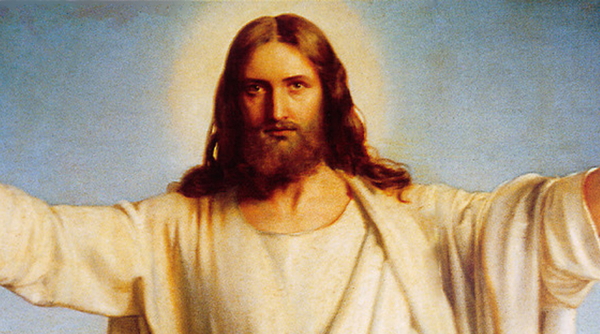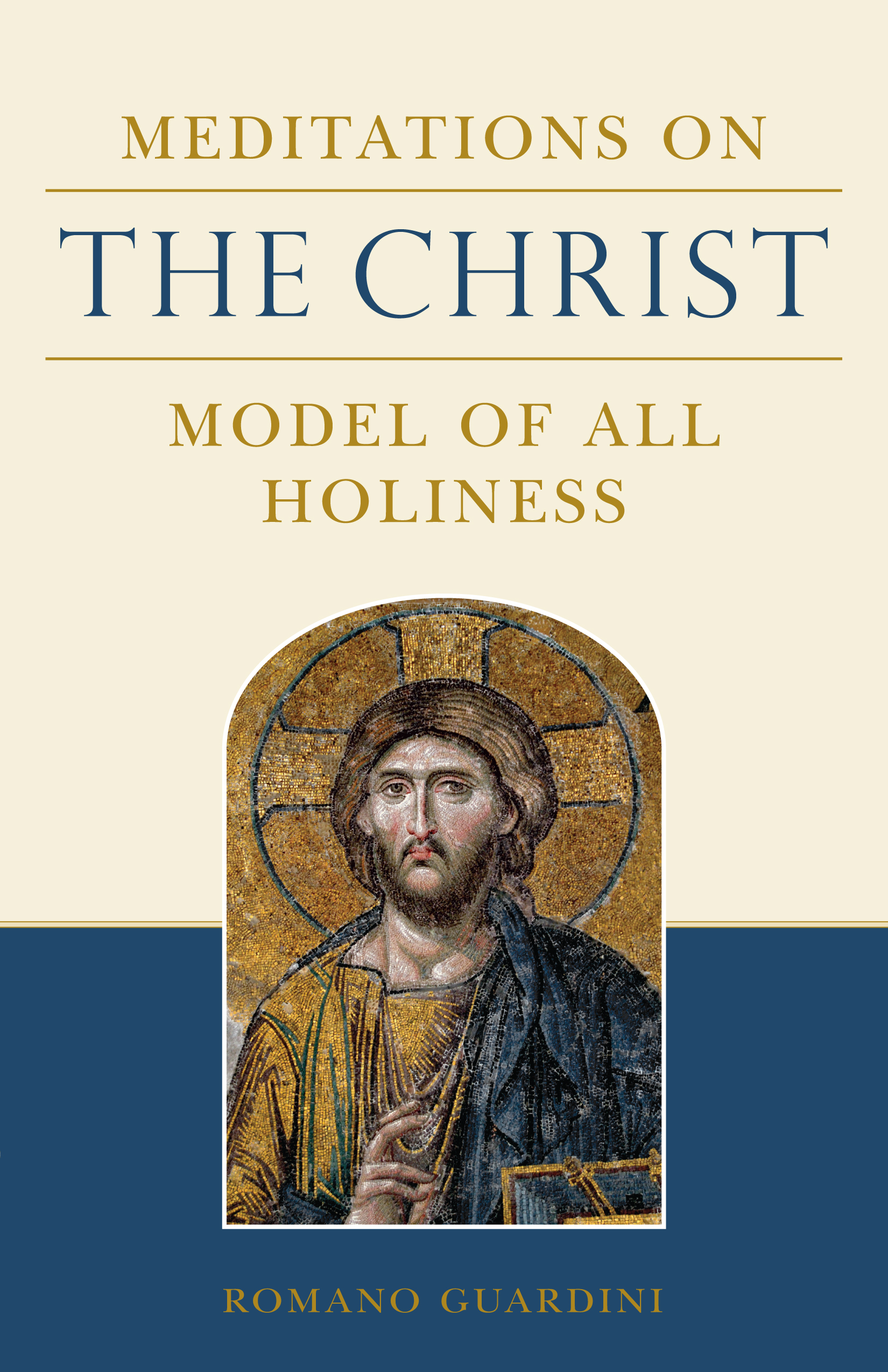God is With Us: How Jesus Opens to Man the Presence of the Father

Women Are the Heralds of ‘Humanae Vitae’
April 4, 2018
ARCHIVES: Cardinal Burke’s 10 Ways to Overcome Crisis of Confusion, Division in the Church
April 4, 2018
By Charlie McKinney, Spiritual Direction.com, April 4, 2018
The Lord died and arose from the dead to a new life of an absolutely Godlike character. It was that life that was suddenly and mysteriously illuminated for a moment on Mount Tabor. When He was on His way to Jerusalem, where He was to suffer, this Godlike essence blazed up from hidden depths. True enough, it was only for one short hour, and thereafter it subsided. Now, however, after He had walked through death, life broke through with almighty power. The Lord lived. Now He lived in a new way — alive from within, with a divine Lordship permeating His being, body and soul.
Now there was a strange interval of time. He was still on earth, and yet no longer so. He had a way of appearing, first in one place, then in another; making mysterious transitions from some other-where into the here, and then disappearing again. He had overcome the limitations of earthly existence. Gravity no longer bound Him. Space and the resistant quality of material substance could not interfere with Him. Yet He still lived on earth.
Finally He took definite leave of earth, for Heaven.
What is Heaven? When one asks a child that question, the child will just point upward: “Up there.” We should not be too swift to laugh. The child means more by those words than may be established by the metamorphosis of scientific investigation; that “up there” which cannot exist because there is no such thing as up and down in the last analysis — if the child were questioned more exactingly, the answer would be: “Heaven is where God lives.”
Could we have any better answer, any truer one, to the question of what Heaven is than this one: that Heaven is where God lives? When our Lord spoke of His forthcoming death, did He not say, “I leave the world and go to the Father”?
But if Heaven is where God lives, and God is everywhere, then it must follow that Heaven is everywhere. That is quite true. Heaven is everywhere. In every place, and here, too. That is the first and greatest answer: Heaven is right here.
Again, this was said by Jesus Himself: “The kingdom of Heaven is within you.” How is this so? God is supposed to live in the “inaccessible light.” That is true. By ourselves, we cannot get in. It is closed. Heaven is all about us, yet it is closed to us.
It was open around Jesus. He entered into this openness when He left us; and then He was gone.
Heaven is where God lives. Heaven is the presence of God. Now He has opened this presence to us.
Can there be a presence which is closed? Yes, there is such a thing. When I want to approach someone, I can always travel to the town where he lives and go to his house; I can sit down beside him. Then I am together with him. But if his attention is elsewhere, or if he has no confidence in me, then despite all physical proximity in space, he is in fact so far away that I cannot possibly “get to him.” That is presence closed
It would open up, as it were, if he took notice of me, felt some sympathy, trust, or affection for me; then this presence would be an open thing, and he alone can create this condition of accessible proximity. It can come only from him, yet it is part of the picture that I should feel it too. I must notice how he directs his attention toward me; I must respond to his affection and trust. Then, when one has become inwardly involved with the other, has developed a sympathetic response to the other’s thoughts and emotions, there is true proximity.
God is always and everywhere near to man. But to man by himself, His presence is inaccessible, blocked off. God alone can open up this channel. We believe He did this. The presence of the Father was all around Jesus. The Father was completely open with Him, one with Him in an infinity of love. We have listened to the words whence this presence can be heard speaking out. Heaven surrounded Jesus, the accessible presence of the Father.
And Jesus has brought this presence to us. We know that the Father loves us in Jesus. We have confidence in the grace of His love for us; we know that His eyes see us, His heart is turned toward us, and His hand leads us. We believe that Heaven is around us.
However, one thing is missing: we do not feel the presence of God. It is still closed off, from our side. It is closed off by what we ourselves are; by the heaviness of our imprisoned being; by the slothfulness and dullness of our hearts; by the evil that is in us. Heaven would be here entire if God opened up His presence to us, and at the same time opened up men’s hearts so they could feel this presence.
Perhaps it can be said that Heaven is on its way to us as long as we do not keep it at a distance by our own actions. I believe it is no fantasy or delusion to think this way: that our whole Christian life consists in having Heaven continually striving to catch up with us, close in on us. Every Christian act, belief, love, sacrifice, struggle, every perseverance and courageous performance — all these things make possible the approach of Him who desires only to come forward. But all coldness, indifference, slothfulness, weakness, pride, covetousness — everything that sin is called — forces Him back, bars the road to Him. And Heaven fights. Heaven wants to come to us. For Heaven is only God’s love come home.
What a tremendous thought it is: Heaven on the way to meet me, relentlessly advancing toward me, and God’s eye is upon me. And to think of the mightiness of the will behind it! The monumental strength of that desire! From what depths comes that petition: “Thy kingdom come” — the kingdom of Heaven!
When is Heaven truly and completely present? It is when all heaviness is gone; when all sluggishness has been overcome, all wickedness, coldness, pride, irritation, disobedience, and covetousness; when there is no danger anymore of falling away; when grace has made one’s whole being open up, body and soul, to the ultimate profundities; when there is no further danger that it will all close in again, become hardened in ways of evil; when all work to be done on earth is finished, and all guilt has been paid by repentance. What all this means is: after death.
After death — when time is no longer; when everything is in the everlasting now; when nothing can change anymore, but the creature stands illuminated by the light of eternity, before God — at that time, everything will be open, and will remain so. That is being in Heaven.
The day He left this earth, Jesus went to Heaven, His body and His soul. All earthly heaviness vanished. All limitations of being in this place or that place dropped away. Every burden of earthly need fell away. There was nothing more closed off, not even for the body. Everything was open. Everything about Him made its way in the overmastering presence of His Father.
But here is the mystery: the very moment that He leaves us, He returns: “I am going away” to the Father; but He added immediately “and coming back to you.” And in Matthew’s Gospel, He told them, “Behold I am with you all the days that are coming, till the consummation of the world.” And the one statement is made true by the other. He went away from us, His body also, to Heaven, to the pure and open presence of His Father which He has directed toward us. He who was the intermediary between the Father and us — “the way, the truth and the life” — has entered completely into this love. Now He is everywhere the Father’s love is, and so He is with us. He is gone from the visible, transient here and now. But now, from there, and because He is there, He can, through the love of the Father, be with each of us and with the Father also. He is within us, closing in upon us, bringing with Him the presence of the Father, Heaven.
“See where I stand at the door, knocking; if anyone listens to my voice and opens the door, I will come in to visit him, and make my supper with him, and he shall sup with me.”“Supper” is the extravagant superabundance of God’s accessible presence bursting in, blessed, satisfying, making drunk with all the drunkenness of love.
This is how we properly understand Heaven. It is that close presence wherein the Father stands in relation to Jesus Christ. And Heaven for us will be participation in this intimacy of love.
This condition is already beginning; it approaches closer; now in peril, it is fought over, lost, and won back again. So it goes with our Christian life.
+
This article is adapted from a chapter in Meditations on the Christ by Romano Guardini which is available from Sophia Institute Press.
Art for this post how Jesus opens to man the presence of the Father: Cover of Meditations on the Christ used with permission; Consolator, Carl Heinrich Bloch, by 1890, PD-US author’s life plus 100 years or less, Wikimedia Commons.
READ MORE from Romano Guardini.





